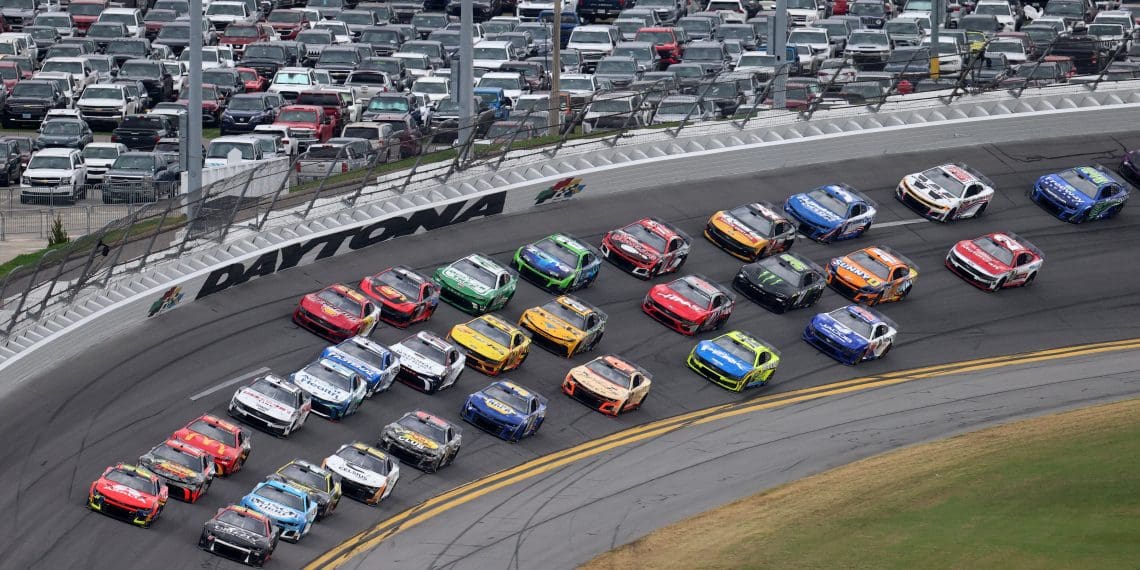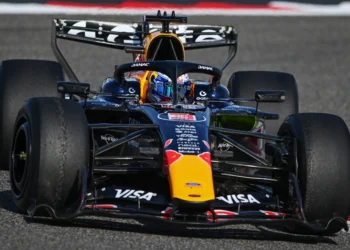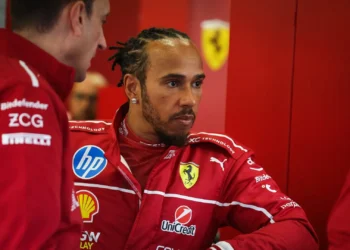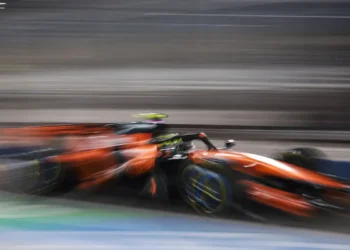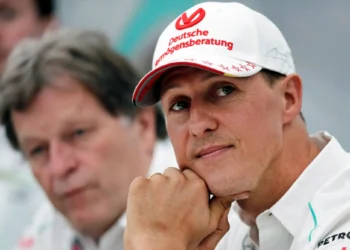For decades, NASCAR has thrived on its unfiltered, raw nature—the emotional outbursts, the brutal honesty, the hard-nosed racing, and yes, the occasional cursing that comes with it. Whether it’s Kyle Busch throwing punches at Ricky Stenhouse Jr. or drivers letting loose on the radio after getting wrecked, the sport has never shied away from its no-BS attitude. But after an action-packed 2025 Daytona 500, it seems NASCAR might be headed in a direction that could fundamentally change the sport’s culture.
Could NASCAR Start Penalizing Swearing?
Reports indicate that several complaints were lodged against NASCAR’s on-board camera broadcast for excessive swearing during the Daytona 500. While the sport has never actively penalized drivers for in-race profanity, could this change now that big-name broadcasters like Amazon have entered the scene?
If so, it wouldn’t be the first time NASCAR has gone down this road.
Flashback to 2004: Dale Earnhardt Jr. was docked 25 points and fined $10,000 after dropping an unscripted expletive in his post-race interview at Talladega. The penalty was devastating, as it ultimately cost him the championship. Instead, Kurt Busch won the title that year, forever leaving Earnhardt Jr. wondering what if.
Since then, however, NASCAR has largely embraced the raw emotion of its drivers. “NASCAR Radioactive” on YouTube highlights these moments, celebrating the fiery tempers and uncensored rivalries that make stock car racing unique.
Is NASCAR Following Formula 1’s Lead?
The fear among fans is that NASCAR is heading toward the overly sanitized, corporate-controlled world of Formula 1.
In 2024, the FIA implemented a “swearing ban”, fining drivers and even enforcing community service punishments for using profanity in broadcasts and press conferences.
Max Verstappen, never one to hold back, openly mocked the rule after the Azerbaijan Grand Prix, saying:
“Excuse me for the language, but what are we? Five-year-olds? Six-year-olds?”
His punishment? Community service.
If NASCAR follows suit, it risks alienating its most loyal fans—the ones who tune in for the rawness, the unfiltered personalities, and the unpredictable chaos that makes stock car racing different from every other motorsport.
Will New Broadcasters Change the Game?
With Amazon, TNT, and others now holding rights to NASCAR broadcasts, there’s speculation that corporate influence may push the sport toward more censorship. These networks are highly brand-sensitive and may not be as willing to showcase the unfiltered emotion that NASCAR fans have grown accustomed to.
But the real question is: Would NASCAR drivers actually change their behavior?
If Kyle Busch, Denny Hamlin, and Joey Logano have anything to say about it, probably not.
As it stands, NASCAR is one of the last major sports that allows its competitors to be unapologetically themselves. Fans love it that way. The moment you start policing personalities in a sport built on passion, you risk turning it into something it was never meant to be.
So, NASCAR, take notes from F1’s mistake—let the drivers speak their minds.

